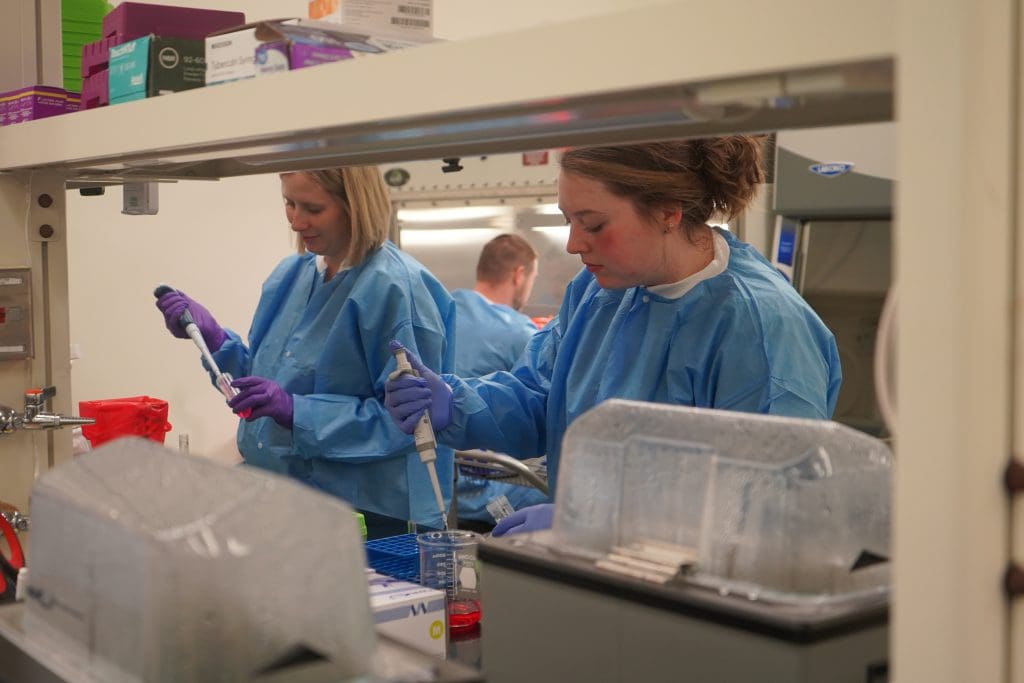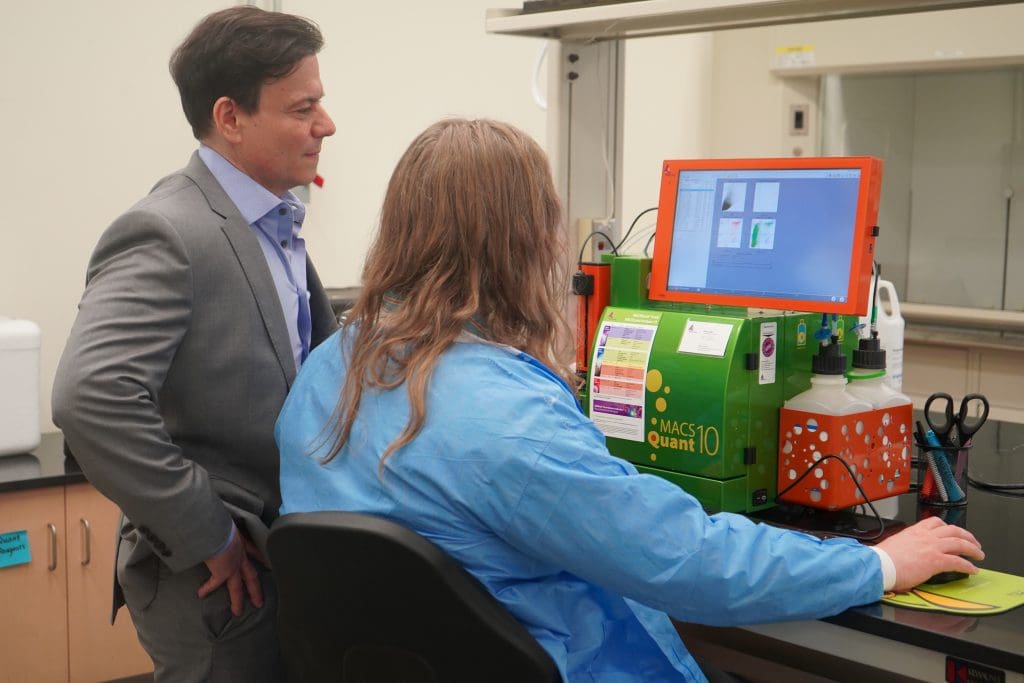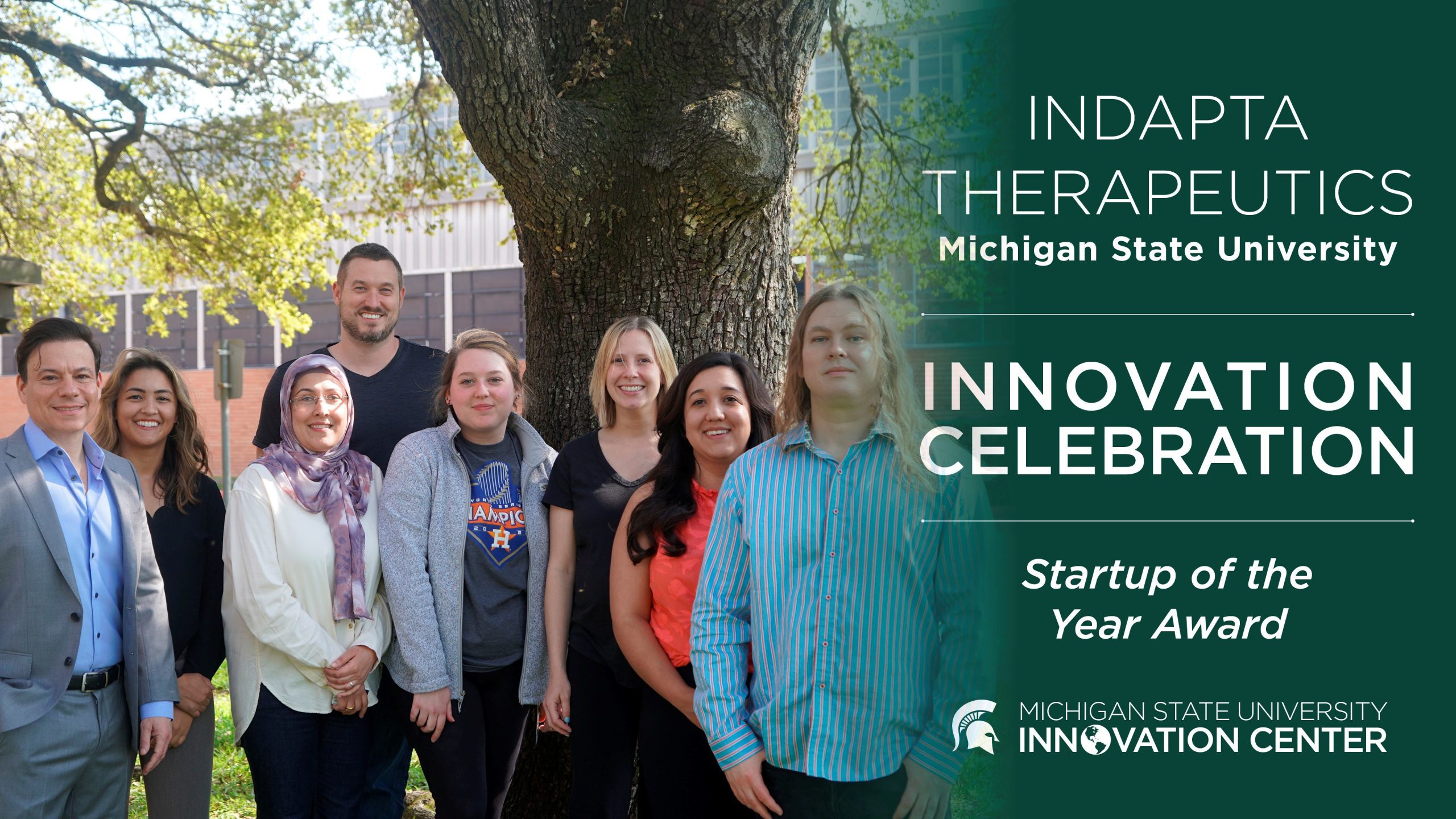A cancer diagnosis can be devastating news. The National Cancer Institute estimated that roughly 1.9 million Americans were diagnosed in 2022 alone. While treatment options exist for many types of cancer, these treatments often have several undesirable side effects. Likewise, there are numerous types of cancers for which no known treatment currently exists. Indapta Therapeutics hopes to change how we treat cancer.
 Founded in 2016, Indapta Therapeutics is a biotechnology company focused on developing innovative treatments for cancer using a type of immune cell called a Natural Killer (NK) cell. Early clinical trials on NK cells are encouraging and indicate that NK cells have shown to be well-tolerated and to have meaningful anti-tumor effects on patients with blood cancers such as lymphoma.
Founded in 2016, Indapta Therapeutics is a biotechnology company focused on developing innovative treatments for cancer using a type of immune cell called a Natural Killer (NK) cell. Early clinical trials on NK cells are encouraging and indicate that NK cells have shown to be well-tolerated and to have meaningful anti-tumor effects on patients with blood cancers such as lymphoma.
The California-based startup’s therapies are focused on a subset of NK cells called g-NK cells that Dr. Sungjin Kim, a faculty member at MSU at the time, initially discovered. Kim’s research identified g-NK cells and their anti-tumor activity when combined with monoclonal antibodies. Guy DiPierro, Indapta’s founding CEO and now COO, learned of Kim’s discovery and research on the properties of g-NK cells and, recognizing the tremendous clinical potential of this discovery, worked with MSU Technologies to license this technology and founded Indapta Therapeutics.
Indapta believed that g-NK treatments have a number of advantages over current cancer treatments, including other immune cell therapies. In currently approved immune cell treatments, immune cells are harvested from the patient. These patients with advanced cancers have likely had numerous rounds of chemotherapy that can significantly diminish the patient’s immune system and thus reduce the number of immune cells that can be utilized for treatment.
 Indapta has developed a process to collect g-NK cells from healthy donors that can then be expanded to large numbers using a proprietary manufacturing process. The g-NK cells can be frozen and stored in advance and delivered to physicians as needed, where they can be thawed and administered. In addition, because g-NK cells are an “off-the-shelf” treatment, patients do not have to wait for the cells to be manufactured for treatments to start. “We expect that g-NK cells will be extremely well tolerated, with minimal side effects. This is in sharp contrast with the side effects of CAR-T cell therapy or chemotherapy. In addition, we anticipate that g-NK cells may be effective against a broad number of cancer types, where there are approved monoclonal antibodies that we can combine with,” said Mark Frohlich, CEO of Indapta Therapeutics.
Indapta has developed a process to collect g-NK cells from healthy donors that can then be expanded to large numbers using a proprietary manufacturing process. The g-NK cells can be frozen and stored in advance and delivered to physicians as needed, where they can be thawed and administered. In addition, because g-NK cells are an “off-the-shelf” treatment, patients do not have to wait for the cells to be manufactured for treatments to start. “We expect that g-NK cells will be extremely well tolerated, with minimal side effects. This is in sharp contrast with the side effects of CAR-T cell therapy or chemotherapy. In addition, we anticipate that g-NK cells may be effective against a broad number of cancer types, where there are approved monoclonal antibodies that we can combine with,” said Mark Frohlich, CEO of Indapta Therapeutics.
Indapta’s g-NK treatments are designed to work in combination with approved therapeutic monoclonal antibodies. “These antibodies will recognize and stick to the cancer cells. g-NK cells have a receptor that binds to the antibodies and are able to very effectively kill these antibody-coated cancer cells. All NK cells can do this to some extent, but g-NK cells are particularly good at this,” explained Frohlich.
While their initial clinical trials will focus on lymphoma and multiple myeloma, Frohlich believed g-NK treatments could be used to treat other forms of cancer as well. “Once we have demonstrated clinical proof of concept in these diseases, we will be excited to explore their activity in solid cancers, in combination with monoclonal antibodies approved in those diseases,” Frohlich stated.
Based on their compelling data, Indapta was able to attract several highly regarded investors, including the MSU Research Foundation, to invest in a Series A financing round of $60 million and is now in the process of filing their IND with the FDA, with a plan to start first-in-human Phase 1 clinical trial later in 2023.
When asked about Indapta’s success and being named the MSU Startup of the Year, Frohlich reflected, “We are deeply appreciative of the important scientific discoveries and advances made at MSU that provided the foundation for Indapta Therapeutics. We believe that g-NK cells, discovered at MSU, have the potential to dramatically change the treatment of cancer, providing a highly safe and effective therapy that can be delivered in the outpatient setting.”
About the MSU Innovation Center:
The MSU Innovation Center is dedicated to fostering innovation, research commercialization, and entrepreneurial activities from the research and discovery happening across our campus every day. We act as the primary interface for researchers aiming to see their research applied to solving real-world problems and making the world a better place to live. We aim to empower faculty, researchers, and students within our community of scholars by providing them with the knowledge, skills, and opportunities to bring their discoveries to the forefront.
Through strategic collaborations with the private sector, we aim to amplify the impact of faculty research and drive economic growth while positively impacting society. We foster mutually beneficial, long-term relationships with the private sector through corporate-sponsored research collaborations, technology licensing discussions, and support for faculty entrepreneurs to support the establishment of startup companies.
Is your company interested in working with MSU’s College of Human Medicine? Click Here.

